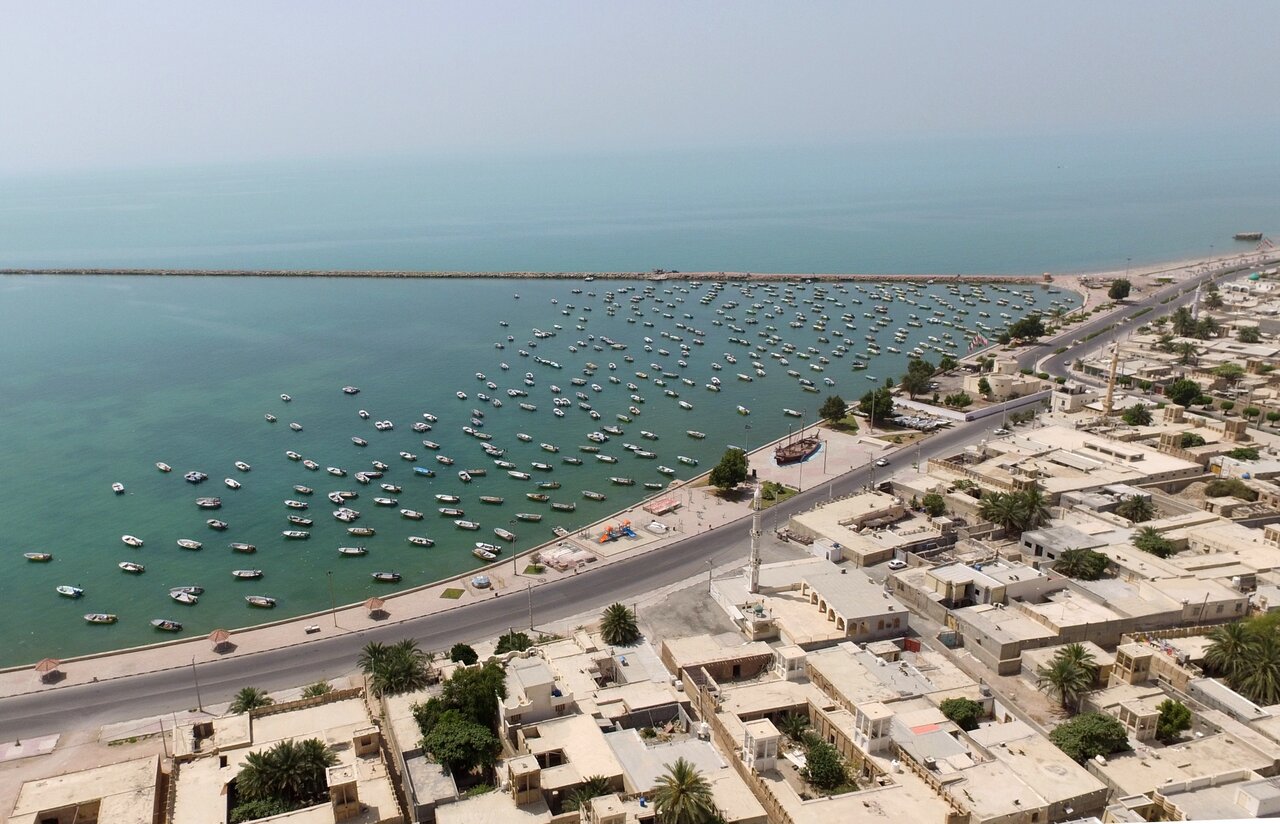Bandar Abbas offers unique blend of history, culture and natural beauty

TEHRAN - Bandar Abbas, a port city bounded by the Persian Gulf, is full of history, culture and natural attractions, with great significance for Iran's economy.
Bandar Abbas is a city that offers a unique blend of history, culture, and natural beauty. It is an appealing tourist destination for both domestic and international visitors that offers a range of activities and sites to explore.
The city is also home to some of the most beautiful beaches in the region. The crystal-clear waters of the Persian Gulf make for a perfect place to swim, sunbathe, or participate in water sports.
Visitors can experience the beauty of the Persian Gulf, the hospitality of the locals, and the delicious food and vibrant souks. Sightseers may arrange visits to the nearby Hormuz Island, a UNESCO heritage site, and explore the ruins of Portuguese fortresses.
Visitors may roam in local souks for a while. In those bustling marketplaces, locals sell arrays of goods, from spices and herbs to handmade carpets and jewelry. Visitors can explore the unique and beautiful architecture of the souks and experiment with dishes that reflect the diverse culture of the area.
The strategic location of Bandar Abbas has made it an important city throughout the history of Iran. The people of Bandar Abbas are famous for their unmatched kindness and hospitality. They speak Persian with their own special accent, and their interesting culture and traditions are unique in the country.
Similar to other cities near the Persian Gulf and the Gulf of Oman, Bandar Abbas has a humid and hot climate. The temperature is between 15 and 20 in winter and between 35 and 48 in summer and the humidity rate often reaches 60 to 70 percent. The best time for traveling to Bandar Abbas is in winter due to the moderate weather.
Here is a selection of popular sites to visit while in Bandar Abbas.
Emaret-e Kolah Farangi
Dating back to the Safavid era, Emaret-e Kolah Farangi was once a mansion that served as the customs building. This historic two-story building gets its name from its roof, resembling the hats (“Kolah”) that the foreigners wore at the time. The mansion is now open to the public.
Since this mansion has been influenced by the European architecture of that period, it is known as Kolah Farangi Mansion, just like so many other mansions in the Qajar era.
Hammam-e Galeh-Dari
The 13th-century Hammam-e Galeh-Dari is one of the few traditional bathhouses left in Bandar Abbas. It was built in the 19th century by the order of one of the famous merchants of the city.
The interior is built with materials that can absorb extra humidity. Today the historic Galeh-Dari bath is an anthropology museum, best for learning about the culture and lifestyle of the people of Hormozgan province.
Pol-e Latidan
Pol-e Latidan is one of the longest bridges in Iran. It was built almost 500 years ago and was used as a passage for the convoys passing by.
Unfortunately, a major part of this historic bridge was destroyed due to the use of uneven rocks instead of bricks in its construction.
Qale Fin
Standing on a mountaintop, Qale Fin is a mysterious ruined fortress near Bandar Abbas.
Similar to many others, this stronghold was built for military purposes. The construction date is estimated to be around the middle of the Islamic era in Iran.
Ma’bad-e Hindu
Ma’bad-e Hindu (Hindu Temple) is one of the most popular attractions in the port city.
The modest temple was built in the early 20th century to serve the Indian community working for the British East India Company.
The temple features are a combination of Persian and Hindi architecture, which is one of the historical monuments in Hormozgan province.
Moreover, it has a white façade and stunning dome as well as religious frescos inside. However, it lacks the vivid colors that are usually associated with Hindu temples.
Genu hot spring
Genu is one of the hot springs of Hormozgan province, which is located 30 km from Bandar Abbas in a northward direction.
Genu spring water with sulfur compounds is said to be useful in relieving and improving some diseases, such as skin diseases and rheumatism.
The hot spring is now built as a residential and welfare complex in a large area and is available to tourists. The presence of a hotel, amusement park, and separate hot water pools for men and women are among the features of this large complex.
AFM
